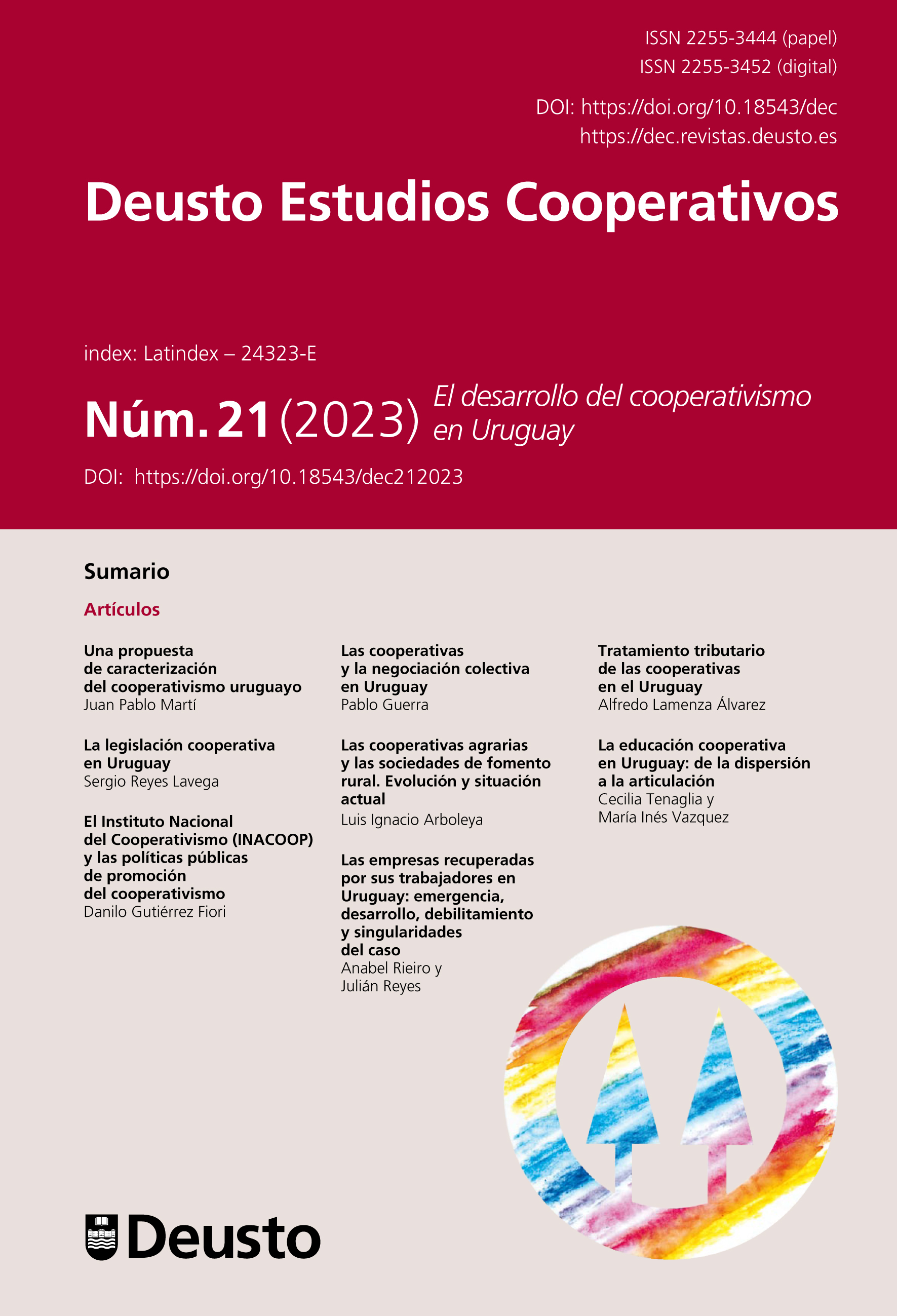Las cooperativas y la negociación colectiva en Uruguay
Abstract
In this article we will describe the main characteristics of the labor relations system and how the cooperative sector is inserted, particularly in terms of Salary Councils, that is, the main collective bargaining mechanism established in the country as of 1943 and which requires to the capital-work binomial to participate in the salary negotiation with the State. One of the premises that we will be handling from the conceptual point of view is that this tripartite negotiation has its explanation and origin in the framework of normal conflicts between employers (capital companies) and workers (organized via unions). Such a design was not intended for the social and solidarity economy sector in such a way that it would be difficult to develop its specific identity if it had to choose to participate together with the Business Chambers or the Unions. This leads us to analyze the possibilities of a quadripartite route in which the identity of the sector is expressed through a participation strategy more in line with an alternative business format.
Received: 03 November 2022
Accepted: 12 January 2023
Downloads
The authors, by submitting their manuscripts to the Deusto Estudios Cooperativos (DEC), accept the conditions listed below on copyright and undertake to comply with them. They do not sign any document of assignment of rights to the Publisher.
1. Authorship: The author must be the sole creator of the work or legally acting on behalf of and with the full agreement of all the authors.
2. Copyright and Code of conduct:
a) Authors warrant that their work is original; has not been previously copyrighted or published in any form; is not under consideration for publication elsewhere; its submission and publication do not violate the Ethical Guidelines of DEC and any codes (of conduct), laws or any rights of any third party; and no publication payment by the Publisher (University of Deusto) is required.
b) Authors grant to the Publisher the worldwide, sub-licensable, and royalty-free right to exploit the work in all forms and media of expression, now known or developed in the future, for educational and scholarly purposes.
c) Authors retain the right to present, display, distribute, develop, and republish their work to progress their scientific career provided the original publication source (DEC) is properly acknowledged.
d) Authors warrant that no permissions or licences of any kind have been granted or will be granted that might infringe the rights granted to the Publisher.


3.jpg)
3.jpg)







